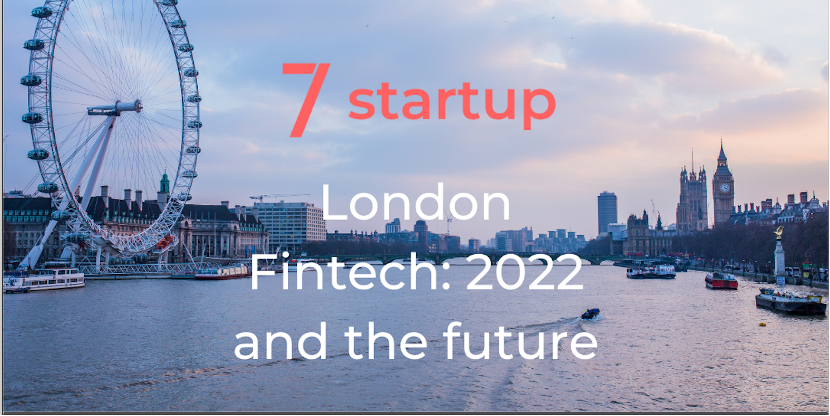In 2021, the fintech industry maintained its continuous rate of growth, generating $121.6 billion, a 153 percent rise in terms of worldwide VC transaction value year over year. The Finovate conference, held in London this week, addressed a good year for Fintech businesses and outlined what’s next in fintech and we take a look at what this means for London fintech in 2022.
Here are some of the key takeaways that we learned from Finovate this year:

London played host to Finovate 2022
Fintech’s three sub-verticals.
Brokerage experience hasn’t kept pace with advice experience. And, despite the fact that B2B WealthTech funding soared in 2021 (156 percent in dollars and 46 percent in deals)according to CBinsights, it remains a laggard.
Proptech has remained at its same level on the Fintech sub-vertical ranking which surprised some. Despite the fact that there are several opportunities to tackle problems in this industry, the hashtag #proptech is not popular.
Around € 9 trillion in deposits are held in Europe. DreamsTech, a behavioural PFM Fintech, stated this startling figure to demonstrate how much more work has to be done to encourage individuals to invest. They are a fintech company that has achieved success in the Nordic region and is currently expanding geographically in Europe.
Back when Betterment and Wealthfront were the most appealing Fintechs, the € 9 trillion topic was referred to as “unadvised assets.” Unadvised asset tracking has lately revealed that the needle hasn’t moved in the last few years.
Narrative:
With the distressful situation currently unfolding in Ukraine, it was always going to be a hot topic at this year’s conference.
Purpose-driven banking is clearly here to stay, and those who don’t understand it will suffer. Polarisation and global tensions have brought the G for Governance to the fore. Companies must now take a stand on social issues beyond government reach, turning challenges into opportunities to redefine their mission beyond just profit, embracing a wider economic purpose.
Interesting points:
There were some great points put forward by speakers ranging from investors, founders, and professionals from all over the world, giving attendees plenty to think about.
- Payments thrive amid macro events like Brexit and sanctions, with changing consumer behaviors further proving their enduring value.
- The fintech sector faces a pivotal moment, highlighted in a discussion with Andrew Vorster, Chris Skinner, and RBS International’s Jamie Broadbent, driven by Ghela Boskovich.
- Evolving from data warehouses to data lakes and now to Data Mesh is crucial for reducing costs and enabling real-time analytics within complex ecosystems.
- Current AI algorithms excel at computational tasks, but we now need to teach them how to think emotionally and psychologically. To teach algos, Facebook (Meta) is already hiring philosophers and psychologists.

Multiple talking points at Finovate last week
London Fintech in Future
In short, everything leads to a long-term expansion, especially with London fintech.
Despite Brexit and pandemic disruptions, a Tech Nation study shows strong confidence in the UK tech sector. Two-thirds expect growth over the next five years, with fintech and cybersecurity poised for major investment. Half of those polled believe there will be more year-over-year exits, resulting in a new high.
The year 2022 will be the year of fintech for social benefit. Companies with a social mission have been rising in popularity for some years, and Ipsos Mori has long tracked the public’s growing antipathy for companies that fail to meet their social, ethical, and environmental commitments.
Conclusion
In the first half of 2021, the UK’s fintech sector outperformed its entire 2020 in fundraising. As we look into the future, it’s notable that in 2023, the sector faced a significant downturn, with funding falling 63% compared to the previous year. This shift suggests a cooling off from the previous growth spurt, impacting how we view the sector’s evolution. Despite the decline, the anticipation for a term to encapsulate London’s fintech unicorns remains, reflecting the ongoing interest in standout performers within the market.
Regardless of how you look at it, I think are unmistakably in the midst of a revolution. Nobody could have imagined the massive increase of London exits just five years ago, and it doesn’t appear to be slowing down anytime soon. London fintech enterprises should expect exciting times ahead.

Amit Khanna, 7startup Founder
Amit has two decades of experience in the industry and an MBA. He supports entrepreneurs with every aspect of their business including concept and product development, investor presentations, and fundraising. Amit & 7startup assist startups in the pre due-diligence process and help connect them to our vast network of investors. Reach out to us today and see if we’re a fit!




